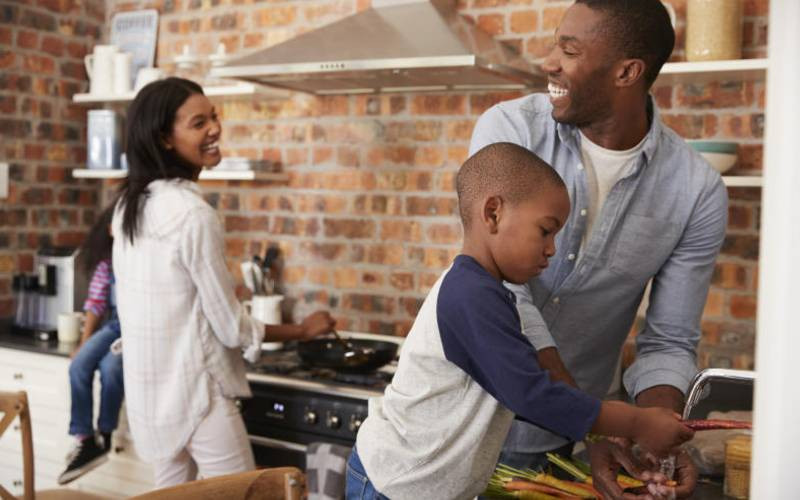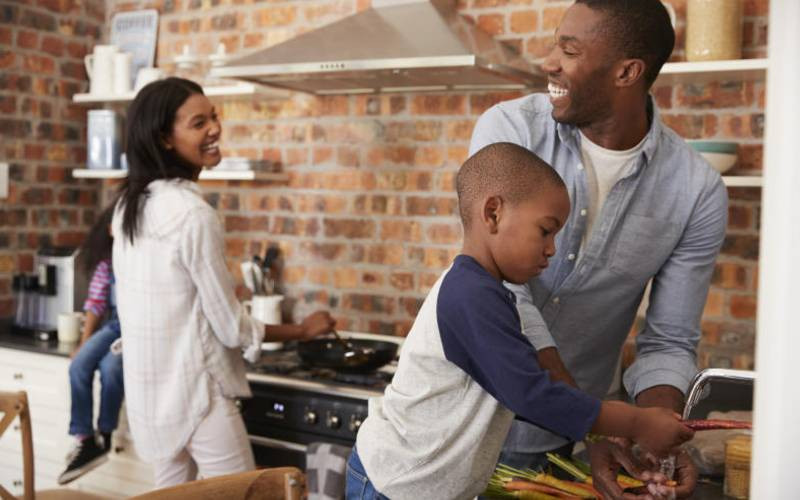
It’s inevitable that parents might be finding it rather difficult to ensure that their kids are getting enough sleep and following a regular bedtime routine.
If you're struggling with this, then it turns out that Hillarys.co.uk might have a solution for you.
They've created a handy sleep calculator to help parents work out exactly how much shut-eye their little ones should be getting each night.
As well as this, their resident sleep expert, Lucy Askew, has shared her top tips for improving kids sleeping habits.
Here's a look at everything you need to know.
The sleep calculator is very simple to use, you just enter your child's age and the time they need to get up in the morning.
The site then calculates the exact time your kid needs to go to bed at night to ensure a "smiley, grump-free morning", giving you several options.
For instance, it says that a five-year-old child who needs to be up at 7am the next day should go to bed at either 5:46pm or 6:16pm or 6:46pm or 7:16pm or 7:46pm.

Alongside the results, the website states: "All children’s body clocks are unique – some need 12 or more hours of sleep each night, others are content with much less.
"Happy mornings rely on sleeping patterns that fall in line with sleep cycles. And that’s where our sleep calculator helps.
"The Sleep Calculator for Kids works out the best time for your child to wake up by counting sleep cycles. Each cycle for a 5-year-old lasts around 30 minutes.
"Waking up mid-cycle can mean your child wakes up grumpy. So your results show wake-up times that are between cycles – that’s when you’re most likely to be greeted with a smile from your child.
"Most children take roughly 14 minutes to nod off (depending on the quality of the bedtime story). This time is included in your results."
As well as picking the right time to go to bed, Lucy has four helpful tips for getting your children to sleep.
1. Have a bedtime/wake-up time and stick to it during weekdays
Whilst the temptation for lie-ins and wearing pyjamas all day is strong, it is important to keep your kids in a regular weekday routine so to avoid confusion once lockdown rules are lifted. The Christmas holiday is now over, and Monday to Friday should be treated like a typical working week in terms of bedtime and waking hours. Sticking to home-based chores and rules in order to enjoy the weekends more and break up the monotony of the week.

2. Ban technology for at least an hour before bed
Excessive use of screen time, in the form of TV’s, smartphones, tablets or video games, before bed has been associated with kids getting less sleep, poorer quality sleep and even fatigue. Make sure that all devices are switched off and out of their reach for at least an hour before their bedtime each evening to help them drift off into a more peaceful and relaxing slumber. Encourage them to either listen to some music or read a book in order to help switch their minds off effectively.
3. Make sure they are getting a good, balanced diet
Despite being at home more than ever before, many families have understandably grown weary of producing home-cooked meals since the start of the pandemic, and have instead found comfort in ordering takeaways or stocking up on easy microwavable or frozen options to feed their kids throughout the day. Whilst this is fine in moderation, it’s extremely important for the growth and development of children that they are eating a nutritionally balanced diet, filled with fruit and vegetables. Low-fat proteins that are rich in Vitamin B, like fish, poultry and eggs help to regulate melatonin, a hormone that will help to regulate your child’s sleep cycles.
4. Ensure their sleeping environment is cosy and quiet
Creating a quiet, cosy bedroom environment for your child will help to make their bedroom a place they WANT to rest in, as well as work and play. Give them the opportunity to add some personal touches to their own bedroom by picking out a new duvet cover or fluffy blanket, and encourage them to spend their home-schooling hours sat at a desk or table rather than their bed so it’s not a place that’s associated with anything other than sleep and rest. It’s also worth considering a night light or fairy lights to add a relaxing atmosphere to their rooms.
 The Standard Group Plc is a multi-media organization with investments in media platforms spanning newspaper print
operations, television, radio broadcasting, digital and online services. The Standard Group is recognized as a
leading multi-media house in Kenya with a key influence in matters of national and international interest.
The Standard Group Plc is a multi-media organization with investments in media platforms spanning newspaper print
operations, television, radio broadcasting, digital and online services. The Standard Group is recognized as a
leading multi-media house in Kenya with a key influence in matters of national and international interest.










